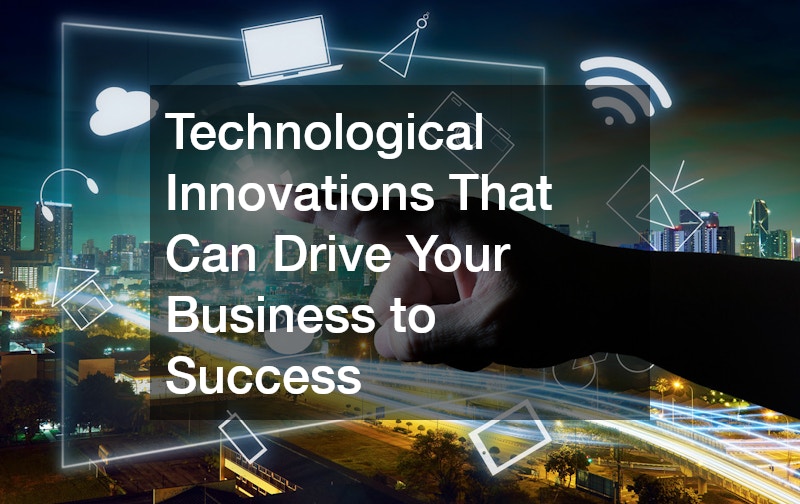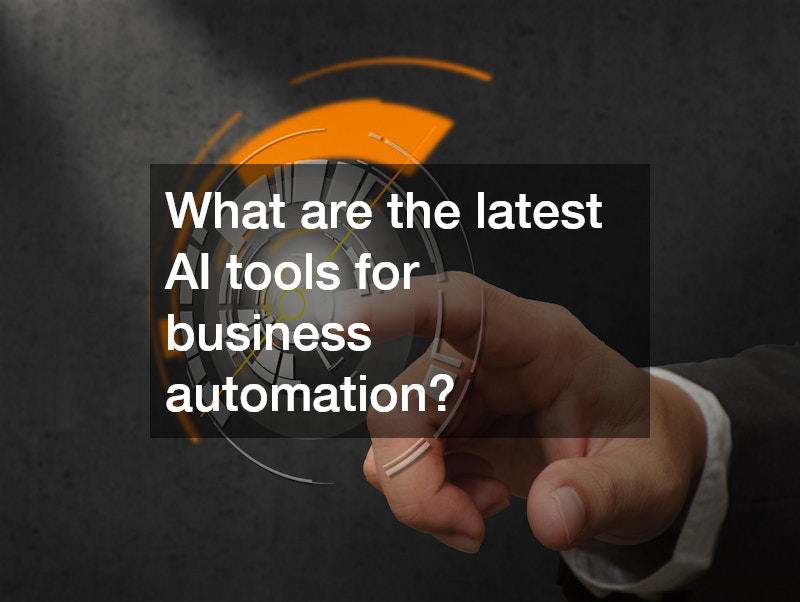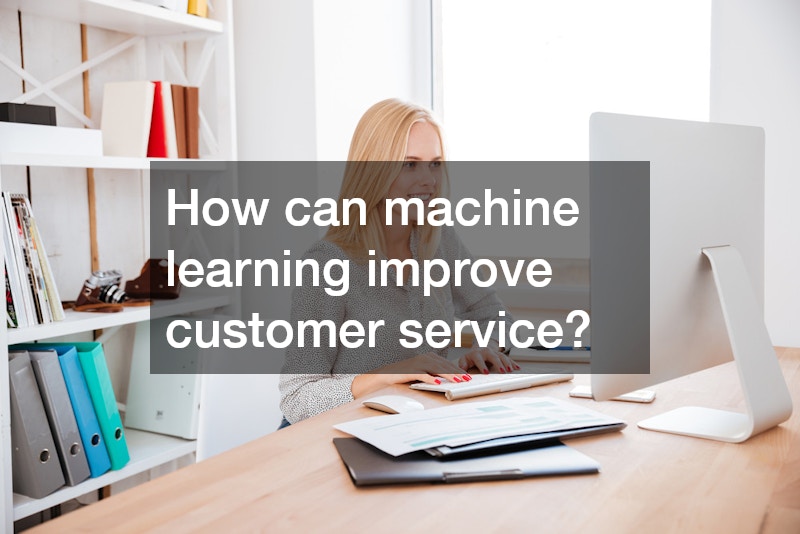
Staying ahead of the technology curve in the fast-paced business world is essential for streamlining operations and maintaining a strong competitive edge. As we near 2024, a number of cutting-edge technologies will revolutionize many aspects of the business world. These advancements will help you improve your business, increase customer satisfaction, and enhance security, whether you are a small-business owner or a corporate executive. Discover how to use these technologies to transform the way you do business.
What are the latest AI tools for business automation?

Artificial Intelligence has revolutionized business processes. By 2024, AI tools will be used to streamline business automation. To make it easier for businesses to integrate AI tools, custom docks are being created. These docks reduce the time and effort needed to automate tasks by simplifying the connection between AI and different software applications.
AI-powered chatbots, for example, are becoming more sophisticated and enabling businesses to automate their customer service interactions. These chatbots are capable of handling a variety of customer questions, from simple FAQs to more complex ones, freeing human agents to concentrate on other tasks. Robotic Process Automation, or RPA, is another AI tool that has gained traction. It automates repetitive tasks like data entry and invoicing processing. This can save time and money.
Businesses also use AI to perform predictive analytics that can predict market trends and customer behavior. Data-driven decisions can be made to enhance a company’s competitive edge. Custom docks and AI-focused companies play a key role in democratizing AI’s benefits.
How can machine learning improve customer service?

By providing more efficient and personalized solutions, Machine Learning (ML) is revolutionizing the customer service industry. Predictive analytics is one of the main ways ML does this. It can forecast customer requirements based on past data. Businesses that offer drive train services, for example, can use ML algorithms to forecast when a vehicle may need maintenance. This will allow them to provide timely reminders and enhance customer satisfaction.
Sentiment analysis is another important application of ML for customer service. By analyzing social media interactions, emails, and chat logs, ML is able to determine the sentiment of customers and flag issues that require immediate attention. Businesses can then address customer complaints in a proactive manner, improving the overall experience. Drive train services and other companies can maintain a good relationship with clients.
ML is also crucial in automating tasks related to customer service. Virtual assistants or chatbots powered by ML handle a wide range of questions, reducing the workload for human agents. These bots are able to learn from previous interactions and improve their responses with time. Businesses can now offer a faster, more accurate service to their customers, thereby increasing customer satisfaction.
What role does blockchain play in business security?
Blockchain technology is a key component of enhancing business security. Decentralization ensures data is stored in multiple nodes. This makes it almost impossible for unauthorized users or hackers to hack or alter the system. This feature is especially beneficial to businesses that deal with sensitive data, like financial institutions or healthcare providers who perform CT scans.
Blockchain offers robust data security and transparency in business transactions. All parties can access a public ledger that records each transaction. Transparency reduces fraud risk and builds trust between business partners. Blockchain can be used by a mudjacking firm to ensure that all financial transactions and records are transparent.
Blockchain can also streamline supply chain management through real-time verification and product tracking. It is particularly useful for companies that deal with complex supply chains or high-value products. Blockchain allows companies to verify authenticity and prevent counterfeiting of products, protecting their brand and customer trust.
How is the Internet of Things revolutionizing supply chain management?
Internet of Things (IoT), which offers real-time data collection and tracking, is poised to revolutionize supply chain management. IoT devices are able to monitor different aspects of the supply chains, from manufacturing to delivery. IoT-equipped sag feed end liners, for example, can provide real-time data on wear, enabling maintenance to be done in a timely manner and reducing downtime.
IoT can also improve inventory management by automating tracking and replenishing. Businesses can use IoT sensors to monitor stock levels and receive alerts if stocks are low. It is possible to maintain optimal stock levels and reduce the risk of overstocking or stockouts. IoT can be used by companies using gooseneck cargo trailers to track the location and condition and ensure timely deliveries.
IoT also improves the overall efficiency of supply chains by providing valuable insight into different processes. Data collected by IoT devices, for example, can be analyzed to identify bottlenecks or areas that need improvement. This information can be used by businesses to improve their operations, lower costs, and increase customer satisfaction.
What are the benefits of cloud computing for small businesses?
Cloud computing has many benefits for small businesses, beginning with cost savings. Businesses can reduce their dependence on IT infrastructure and physical hardware by migrating to cloud computing. It not only reduces costs but it also releases space for other uses. A mud-jacking firm can use cloud solutions to store project data and allow remote access.
Scalability is another significant benefit of cloud computing. Small businesses are able to easily adjust their operations based on the demand without having to invest in extra hardware. This flexibility is especially beneficial to businesses that experience seasonal fluctuations. Cloud solutions offer enhanced collaboration features, which allow teams to work seamlessly together, no matter where they are located.
Cloud computing offers another major benefit: security. Cloud service providers are investing heavily in the security of their platforms. They offer features like data encryption and backups. It ensures business data can be recovered quickly in the event of a disaster and is protected from cyber threats. Cloud solutions allow small businesses to focus on their core business while leaving IT management in the hands of experts.
How can data analytics drive business decisions?
Data analytics is now a key tool in driving business decisions. Businesses can gain valuable insights by analyzing large amounts of data. This will help them to formulate their strategies. Data analytics can be used to determine customer preferences and then tailor marketing campaigns. This targeted approach could lead to increased conversion rates and revenue.
Data analytics can be used to improve operational efficiency. Businesses can identify areas of improvement and inefficiencies by analyzing data from processes. Data analytics can be used by a company that conducts biodegradation testing to optimize its testing procedures and reduce turnaround time. It not only increases productivity but also customer satisfaction.
Data analytics is also crucial in risk management. Businesses can use predictive analysis to predict potential risks and to take proactive measures to reduce them. It could be anything from financial to operational risks. This ensures business continuity. Businesses can use data analytics to make informed decisions that will drive growth and profitability.
Why are cyber security measures important for modern businesses?
Cybersecurity has become an important concern for all businesses in the digital age. Businesses must implement robust cybersecurity measures as cyber threats become more sophisticated. One data breach can lead to devastating financial and reputational losses as well as legal consequences. Businesses must, therefore, prioritize cybersecurity in order to protect sensitive data.
Conducting regular risk assessments is one of the most important steps to enhancing cybersecurity. It involves identifying vulnerabilities and taking measures to fix them. Businesses should invest in advanced security technologies such as intrusion detection systems and encryption. It is important to update software and systems regularly in order to stay protected from the latest threats.
Another important aspect of cybersecurity is employee training. Businesses should train their employees in best practices for data protection, including phishing email recognition and the use of strong passwords. Businesses can reduce the likelihood of human error in security breaches by fostering a security-awareness culture. Businesses can protect their data with a comprehensive cyber strategy and keep the trust of their clients.
What are the advantages of remote work technologies?
In today’s business environment, remote work technologies are becoming increasingly important. These technologies allow employees to work anywhere, allowing for greater flexibility and work/life balance. Businesses can use remote work technologies to attract top talent regardless of geographical location. This is especially beneficial in a highly competitive job market, where it can be difficult to find skilled workers.
Productivity is another significant benefit of remote working technologies. Remote workers often experience higher job satisfaction, which can translate into better performance. Collaboration tools like video conferencing, cloud storage, and project management software can be used by businesses to promote seamless communication and collaboration between remote teams.
Remote work technologies also offer significant cost savings. Businesses can cut their overhead costs by allowing employees to work from home. This includes office space, utilities, and other expenses. Small businesses that have limited budgets will find this especially beneficial. Businesses can increase their agility and reduce costs by adopting remote working technologies.
How can Augmented Reality (AR) enhance product development?
Augmented Reality (AR), which offers immersive and interactive experiences, is revolutionizing the product development process. AR allows engineers and designers to see products in virtual environments, which helps them identify problems and make improvements prior to creating physical prototypes. It can reduce costs and development time, which is ideal for companies that offer precast concrete services.
AR can improve team collaboration as well as the design process. Designers, engineers, and stakeholders can interact in real time with 3D models, no matter where they are located. It allows for better communication, faster decision-making, and a more efficient project. A loading dock repair company can use AR to collaborate with their clients and visualize the repair solution.
AR has many applications, including training and maintenance. Businesses can use AR for interactive training, which reduces the need for training materials and facilities. AR can also be used to guide technicians in complex maintenance and repair tasks, increasing accuracy and efficiency. Businesses can improve their product development process and bring better-quality products to the market by leveraging AR.
What are the best practices for implementing CRM systems?
CRM systems are vital for improving customer relationships and managing interactions with customers. Successful implementation, however, requires meticulous planning and execution. The first step is to set clear goals for the CRM system. It could be to improve customer service, increase sales, or streamline marketing efforts. Businesses can align their CRM system with their overall strategy by setting specific goals.
Involving key stakeholders in the process of implementation is another best practice. Included in this are employees from different departments who will use the CRM system. Their feedback can be very valuable in determining the most important features and functions of your business. It is also important to provide thorough training for users so that they feel comfortable and can use the system effectively.
The quality of data is also a critical component in CRM implementation. Before migrating to the new CRM system, businesses should make sure that their data are accurate, complete, and up-to-date. To maintain the integrity of your data, you must regularly update and clean it. A company that conducts CT scans, for example, can benefit from accurate patient data stored in its CRM system. Following these best practices will help businesses maximize the benefits of their CRM systems and improve customer relationships.
What are the benefits of mobile payment solutions for businesses?
Mobile payment solutions have many benefits, but convenience is the first. Customers can pay quickly and easily with their smartphones without needing cash or cards. This convenience can increase customer satisfaction and sales. A dredging contractor, for example, can offer clients mobile payment options, streamlining payment processes and reducing admin work.
Mobile payment solutions offer improved security as an additional benefit. These solutions are often equipped with advanced security measures such as encryption or tokenization to protect sensitive data. It reduces fraud risk and data breaches and provides peace of mind to both customers and businesses. Mobile payment solutions also streamline financial operations, providing real-time data on transactions, which makes it easier to manage finances and track them.
Mobile payment solutions can also provide valuable insight into the behavior of customers. Businesses can use transaction data to identify patterns and preferences. This allows them to customize their marketing campaigns. This data-driven strategy can lead to better marketing campaigns and increased conversion rates. Businesses can improve their payment processes and security by adopting mobile payment solutions. They also gain insights that will help them grow.
Technology advancements offer businesses a variety of ways to streamline operations and improve their competitiveness by 2024. Businesses must carefully evaluate and implement these technologies strategically in order to maximize their impact. Businesses that want to remain competitive in 2024 will need to embrace these technologies.

